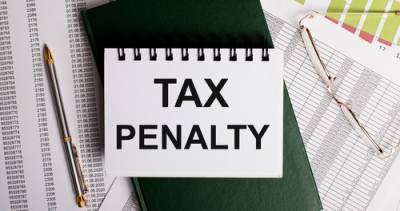Recent Blog Posts
How Does the IRS Address Willfulness in Streamlined Compliance Cases?
 The IRS has been very clear that it may take action against taxpayers with undeclared foreign accounts. In fact, the IRS often specifically targets individuals who have failed to comply with U.S. tax laws by willfully hiding their assets in offshore accounts. However, the agency is also aware that many of these taxpayers may not have been willful in their actions, and they may be seeking to come into compliance through the Streamlined Compliance Procedures. It is important to understand how the IRS determines whether or not someone was willful in their failure to disclose a foreign account. Based on the results of a recent court case, there are some situations where the IRS may reject a taxpayer's self-certification of non-willfulness.
The IRS has been very clear that it may take action against taxpayers with undeclared foreign accounts. In fact, the IRS often specifically targets individuals who have failed to comply with U.S. tax laws by willfully hiding their assets in offshore accounts. However, the agency is also aware that many of these taxpayers may not have been willful in their actions, and they may be seeking to come into compliance through the Streamlined Compliance Procedures. It is important to understand how the IRS determines whether or not someone was willful in their failure to disclose a foreign account. Based on the results of a recent court case, there are some situations where the IRS may reject a taxpayer's self-certification of non-willfulness.
Non-Willfulness Under the Streamlined Compliance Procedures
U.S. taxpayers are required to report any foreign accounts they own to the IRS, and this is typically done by filing a Foreign Bank Account Report (FBAR) on an annual basis, as well as submitting a Statement of Specified Foreign Financial Assets (Form 8938) with their annual tax returns. Failure to submit these forms can result in significant penalties. However, those who have not reported foreign assets as required may be able to come into compliance with their requirements through the Streamlined Compliance Procedures.
New Law Provides One-Time Penalty Abatement for California Taxpayers
 While nearly everyone is required to pay taxes and file annual tax returns, there are a variety of reasons why some people may fail to do so. In many cases, these issues occur because of financial difficulties, and unfortunately, these difficulties may be compounded by the penalties that will apply for failure to file tax returns or failure to pay taxes. Fortunately, penalty abatement programs are available in certain situations. The IRS offers first-time penalty abatement for some federal income tax penalties, and the state of California recently passed a law that will provide similar abatement options for taxpayers who are facing penalties related to state income taxes.
While nearly everyone is required to pay taxes and file annual tax returns, there are a variety of reasons why some people may fail to do so. In many cases, these issues occur because of financial difficulties, and unfortunately, these difficulties may be compounded by the penalties that will apply for failure to file tax returns or failure to pay taxes. Fortunately, penalty abatement programs are available in certain situations. The IRS offers first-time penalty abatement for some federal income tax penalties, and the state of California recently passed a law that will provide similar abatement options for taxpayers who are facing penalties related to state income taxes.
One-Time Penalty Abatement Options Under AB 194
Assembly Bill 194, which was signed into law by Governor Gavin Newsom on June 30, 2022, gives the California Franchise Tax Board (FTB) the authority to grant abatement to taxpayers facing timeliness penalties. These include failure-to-file penalties that apply when a taxpayer does not file a state income tax return by the annual deadline and failure-to-pay penalties that apply when taxes that are owed are not paid when required.
How Can Small Businesses Make Sure They Are Meeting Their Payroll Tax Obligations?

For small businesses, employment taxes and payroll taxes can be a significant issue. It is important for business owners to make sure that they are meeting their tax obligations in order to avoid any penalties or interest charges. By understanding the different types of payroll and employment taxes that may apply to them, small business owners can ensure that they are withholding taxes correctly from employees' wages and paying the appropriate taxes at the federal, state, and local levels.
Understanding Different Types of Employment Taxes
When addressing issues related to payroll taxes, employers will first need to make sure workers are classified correctly. When workers are classified as employees, an employer will need to withhold payroll taxes from their wages. However, taxes will not need to be withheld from payments made to independent contractors. To determine how a worker should be classified, an employer may need to look at whether they have direct control over the person's work, whether the work performed by a person is outside the company's usual course of business, and whether the worker has an independently established business or trade.
Five Tax Issues to Consider During Divorce

Getting a divorce can be a complex, difficult process. Couples who choose to end their marriage will need to address multiple types of financial issues as they divide the assets they own, establish new living arrangements, and determine how they will each be able to meet their ongoing needs. When addressing these concerns, it is important to understand the tax consequences of the decisions that are made. By working with an attorney who understands how to address divorce-related tax issues, a person can make sure they will be able to minimize their potential complications and be prepared for financial success in the future.
Tax Considerations During the Divorce Process
Spouses who are working to complete the divorce process will need to understand the best ways to address the following issues:
Are Taxpayers Responsible for Errors Made by Tax Return Preparers?
 Taxes can be very complicated, and many people rely on accountants or other professionals to help them prepare and submit their tax returns and other required forms and documents. Unfortunately, taxpayers may encounter situations where they find that tax returns submitted to the IRS or the California Franchise Tax Board (FTB) contained incorrect information due to errors made by a tax return preparer. When a taxpayer faces a tax audit or tax penalties based on tax returns prepared by someone else, they will need to understand how to address these issues.
Taxes can be very complicated, and many people rely on accountants or other professionals to help them prepare and submit their tax returns and other required forms and documents. Unfortunately, taxpayers may encounter situations where they find that tax returns submitted to the IRS or the California Franchise Tax Board (FTB) contained incorrect information due to errors made by a tax return preparer. When a taxpayer faces a tax audit or tax penalties based on tax returns prepared by someone else, they will need to understand how to address these issues.
Liability for Tax Return Errors
When a taxpayer signs and submits a tax return, they are legally responsible for addressing issues related to the information they submitted. This is true regardless of whether the tax return was prepared by another person. This means that if the information provided on a tax return was incorrect, the taxpayer will usually be responsible for paying any taxes that are owed, as well as any penalties that may apply.
What Information Must Self-Employed Taxpayers Provide in an IRS Audit?
 The U.S. tax system is complex, and there are a variety of issues that could trigger tax audits by the IRS, potentially leading to penalties. Audits can be a significant area of concern for people who are self-employed or who own small businesses. In these situations, it is important to understand the information that a taxpayer will need to provide to the IRS and the issues that may be raised during an audit.
The U.S. tax system is complex, and there are a variety of issues that could trigger tax audits by the IRS, potentially leading to penalties. Audits can be a significant area of concern for people who are self-employed or who own small businesses. In these situations, it is important to understand the information that a taxpayer will need to provide to the IRS and the issues that may be raised during an audit.
Audit Information Related to Profits, Losses, Deductions, and Expenses
During an audit, the IRS may request a variety of records or other information that supports the information reported on a tax return. These records may be related to:
-
Income - All forms of income that a person earns must be reported to the IRS. It is important for self-employed taxpayers to maintain accurate records of all sources of income. This can sometimes be difficult for those who regularly conduct cash transactions. Large deposits into a bank account or major purchases made using cash may be reviewed by the IRS, and a taxpayer will usually need to provide documentation showing how these amounts were earned.
Who Is Eligible for Relief Under the IRS's First Time Penalty Abatement Policy?
 U.S. taxpayers are generally required to file annual tax returns, and if the proper forms are not filed by the applicable deadlines, a person may face a failure-to-file penalty. Failure-to-pay penalties may apply if a person does not pay any amounts owed at the time they file a tax return. These penalties may cause significant financial difficulties. Fortunately, taxpayers have options for penalty abatement. One option available in certain situations is a first time abatement (FTA) waiver.
U.S. taxpayers are generally required to file annual tax returns, and if the proper forms are not filed by the applicable deadlines, a person may face a failure-to-file penalty. Failure-to-pay penalties may apply if a person does not pay any amounts owed at the time they file a tax return. These penalties may cause significant financial difficulties. Fortunately, taxpayers have options for penalty abatement. One option available in certain situations is a first time abatement (FTA) waiver.
Eligibility Requirements for First Time Abatement
First time abatement is a one-time option that may allow a taxpayer to receive relief from failure-to-file or failure-to-pay penalties. Employers who have been assessed failure-to-deposit penalties may also qualify for FTA waivers. If a request for penalty abatement is granted, the taxpayer will not be required to pay the penalty.
Supreme Court Decision Upholds AB 5 in California for Truck Drivers
 Employers in California need to address a number of tax-related issues, and one area that has caused confusion in recent years involves worker classification. Whether workers may be treated as employees or independent contractors is a significant question that has been raised due to the passage of AB 5 in 2019. This law limited the situations where workers may be classified as independent contractors.
Employers in California need to address a number of tax-related issues, and one area that has caused confusion in recent years involves worker classification. Whether workers may be treated as employees or independent contractors is a significant question that has been raised due to the passage of AB 5 in 2019. This law limited the situations where workers may be classified as independent contractors.
Because the trucking industry has been affected by this law, the California Trucking Association (CTA) filed a lawsuit against the state of California seeking to block this law. This lawsuit claimed that federal regulations under the Federal Aviation Administration Authorization Act (FAAAA) prohibited the state from putting these types of tax laws in place. The 9th U.S. Circuit Court of Appeals had ruled that AB 5 is a general labor law that is not affected by the FAAAA. The CTA appealed to the U.S. Supreme Court, but the Supreme Court decided in June 2022 not to hear the case. This decision maintains AB 5 in place for the trucking industry.
U.S. Supreme Court to Address FBAR Violations
 There are a variety of situations where U.S. taxpayers may face penalties related to foreign assets. Some taxpayers are required to report these accounts to the IRS by filing a Foreign Bank and Financial Account Report (FBAR). Failure to file these reports when required or failure to include accurate information when filing can result in significant penalties. However, there has been some confusion about what constitutes a violation and what penalties may apply. The U.S. Supreme Court will be addressing this issue in an upcoming case.
There are a variety of situations where U.S. taxpayers may face penalties related to foreign assets. Some taxpayers are required to report these accounts to the IRS by filing a Foreign Bank and Financial Account Report (FBAR). Failure to file these reports when required or failure to include accurate information when filing can result in significant penalties. However, there has been some confusion about what constitutes a violation and what penalties may apply. The U.S. Supreme Court will be addressing this issue in an upcoming case.
Penalties for Non-Willful FBAR Violations
Different courts have addressed FBAR violations in different ways, and this has resulted in different penalties being applied depending on where a case was heard. The confusion involving FBAR penalties is related to non-willful violations, or situations where a person did not properly report foreign accounts because they were unaware of how the tax laws applied to them or did not know about their reporting requirements. Courts have differed on whether penalties should apply based on a report that was incorrect or based on each individual account that was not reported correctly.
How Do Gift and Estate Taxes Apply to Cryptocurrency?
 Cryptocurrencies such as Bitcoin and Ethereum have become more and more popular in recent years, and they are now widely used for multiple purposes. Some employers may pay employees in virtual currency, and these currencies may be used to purchase goods or services. Cryptocurrency can also represent a valuable investment, and as the value of different virtual currencies increase, they may be sold or transferred, allowing investors to earn significant profits. For those who have invested in cryptocurrency, it is important to understand the tax implications, including the gift taxes or estate taxes that may apply to certain types of transfers.
Cryptocurrencies such as Bitcoin and Ethereum have become more and more popular in recent years, and they are now widely used for multiple purposes. Some employers may pay employees in virtual currency, and these currencies may be used to purchase goods or services. Cryptocurrency can also represent a valuable investment, and as the value of different virtual currencies increase, they may be sold or transferred, allowing investors to earn significant profits. For those who have invested in cryptocurrency, it is important to understand the tax implications, including the gift taxes or estate taxes that may apply to certain types of transfers.
Taxes Issues Affecting Cryptocurrency Gifts and Donations
The IRS treats cryptocurrency as property, meaning that when it is sold or transferred to another party, capital gains taxes will apply to the gains or losses. For example, if cryptocurrency were valued at $1,000 when a person originally acquired it and it was worth $2,000 when it was sold or exchanged to someone else, this would be considered a gain of $1,000, and the person would be required to pay capital gains tax on this amount.









